Filter by
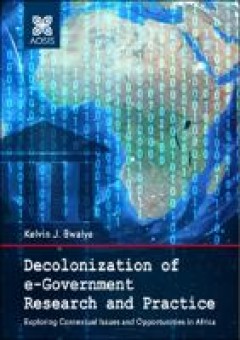
Decolonisation of e-government research and practice: exploring contextual is…
With the rapid increase in the implementation of e-Government in Africa and across the world, the need to investigate the key bottlenecks (issues) caused by the failure of a large number of e-Government projects cannot be ignored. The main purpose of this book is to contribute to the current scholarly and intellectual discourse on different aspects of e-Government such as understanding the crit…
- Edition
- -
- ISBN/ISSN
- 9781928396772
- Collation
- 360 p.
- Series Title
- -
- Call Number
- 351.02854678 BWA d
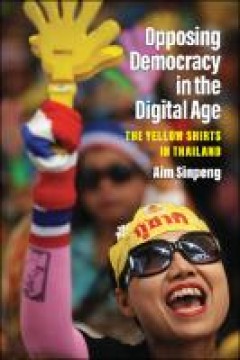
Opposing democracy in the digital age : the Yellow Shirts in Thailand
Opposing Democracy in the Digital Age is about why ordinary people in a democratizing state oppose democracy and how they leverage both traditional and social media to do so. Aim Sinpeng focuses on the people behind popular, large-scale antidemocratic movements that helped bring down democracy in 2006 and 2014 in Thailand. The yellow shirts (PAD—People’s Alliance for Democracy) that are the…
- Edition
- 13
- ISBN/ISSN
- 9780472128563
- Collation
- xiii, 270 p.
- Series Title
- -
- Call Number
- 322.4209593 SIN o
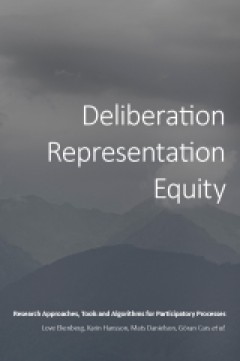
Deliberation, representation, equity: research approaches, tools and algorith…
What can we learn about the development of public interaction in e-democracy from a drama delivered by mobile headphones to an audience standing around a shopping center in a Stockholm suburb? In democratic societies there is widespread acknowledgment of the need to incorporate citizens’ input in decision-making processes in more or less structured ways. But participatory decision making is …
- Edition
- -
- ISBN/ISSN
- 9781783743056
- Collation
- 376 p. : ill. : ind. ; 24 cm
- Series Title
- -
- Call Number
- 323.042 DEL d
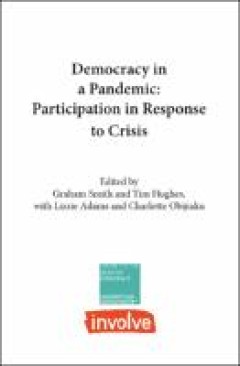
Democracy in a pandemic : participation in response to crisis
Covid-19 has highlighted limitations in our democratic politics – but also lessons for how to deepen our democracy and more effectively respond to future crises. In the face of an emergency, the working assumption all too often is that only a centralised, top-down response is possible. This book exposes the weakness of this assumption, making the case for deeper participation and deliberation…
- Edition
- -
- ISBN/ISSN
- 9781914386183
- Collation
- vii, 191 p.; ill
- Series Title
- -
- Call Number
- 616.2414 DEM d
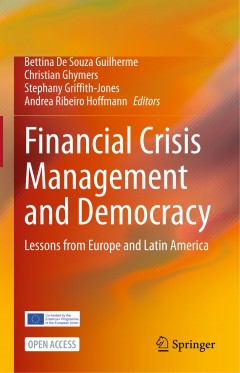
Financial crisis management and democracy : lessons from Europe and Latin Ame…
This open access book discusses financial crisis management and policy in Europe and Latin America, with a special focus on equity and democracy. Based on a three-year research project by the Jean Monnet Network, this volume takes an interdisciplinary, comparative approach, analyzing both the role and impact of the EU and regional organizations in Latin America on crisis management as well as t…
- Edition
- -
- ISBN/ISSN
- 9783030548957
- Collation
- ix, 382p. : ill.
- Series Title
- -
- Call Number
- 339 FIN f
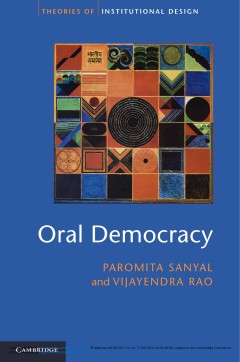
Oral democracy : deliberation in Indian village assemblies
Oral Democracy studies citizens' voices in civic and political deliberations in India's gram sabhas (village assemblies), the largest deliberative institution in human history. It analyses nearly three hundred transcripts of gram sabhas, sampled within the framework of a natural experiment, allowing the authors to study how state policy affects the quality of discourse, citizens' discursive per…
- Edition
- -
- ISBN/ISSN
- 9781139095716
- Collation
- xi, 215p. : ill.
- Series Title
- -
- Call Number
- 320.840954 SAN o
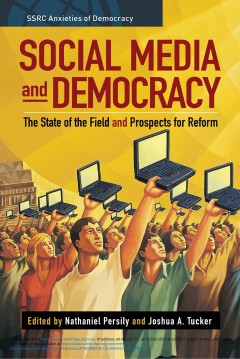
Social media and democracy : the state of the field, prospects for reform
Over the last five years, widespread concern about the effects of social media on democracy has led to an explosion in research from different disciplines and corners of academia. This book is the first of its kind to take stock of this emerging multi-disciplinary field by synthesizing what we know, identifying what we do not know and obstacles to future research, and charting a course for the …
- Edition
- -
- ISBN/ISSN
- 9781108890960
- Collation
- xvii, 345p. : ill.
- Series Title
- -
- Call Number
- 302.231 SOC s
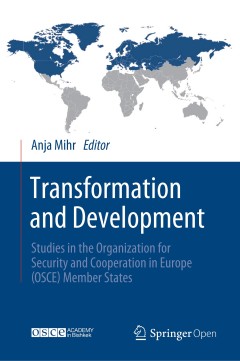
Transformation and development : studies in the Organization for Security and…
This open access book features various studies on democratization, transformation, political and economic development, and security issues in the Organization for Security and Cooperation in Europe (OSCE) geographical region and beyond. Written by experts and academics in the fields of human rights, security, transformation and development, particularly in post-soviet and communist countries, i…
- Edition
- -
- ISBN/ISSN
- 9783030427757
- Collation
- vi, 154p. : ill.
- Series Title
- -
- Call Number
- 338.9 TRA t
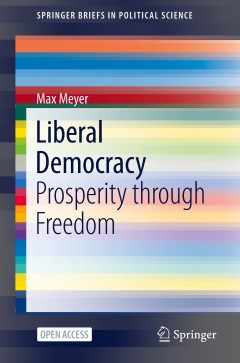
Liberal democracy : prosperity through freedom
This open access book aims to show which factors have been decisive in the rise of successful countries. Never before have so many people been so well off. However, prosperity is not a law of nature; it has to be worked for. A liberal economy stands at the forefront of this success – not as a political system, but as a set of economic rules promoting competition, which in turn leads to innova…
- Edition
- -
- ISBN/ISSN
- 9783030474089
- Collation
- viii, 74p. : ill.
- Series Title
- -
- Call Number
- 330.01 MEY l
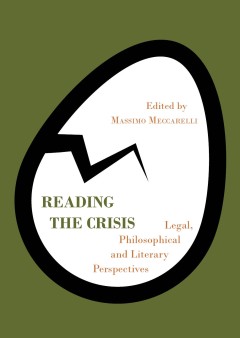
Reading the crisis: legal, philosophical and literary perspectives
Almost a decade has passed since the outbreak of the economic crisis; from its original nucleus, its effects have quickly affected the social and geopolitical fields. Such wide impact and its complex implications make the crisis an object susceptible of multiple readings. The particular aim of the studies collected in this volume is to explore the impact of the crisis on law, culture and societ…
- Edition
- -
- ISBN/ISSN
- 9788491484202
- Collation
- 224 p.; 23 cm.
- Series Title
- -
- Call Number
- 340 REA r
 Computer Science, Information & General Works
Computer Science, Information & General Works  Philosophy & Psychology
Philosophy & Psychology  Religion
Religion  Social Sciences
Social Sciences  Language
Language  Pure Science
Pure Science  Applied Sciences
Applied Sciences  Art & Recreation
Art & Recreation  Literature
Literature  History & Geography
History & Geography